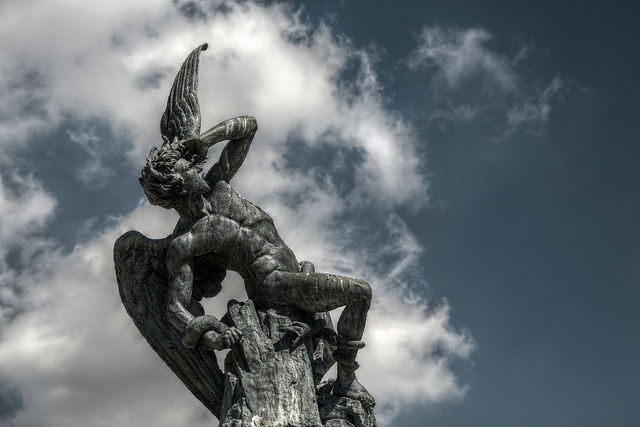Oh, how we love our rebels.
Before there was such a thing as mankind, there were angelic creatures all living in harmony in the presence of God, when one of them decided that wasn’t quite good enough and just had to rebel against it. Then things really got interesting.
Rebels and outsiders have always played a vital role in our civilization and its literature. Achilles, Beowulf and Hamlet are obvious examples. In a more modern version though, our pop culture, since the middle part of the last century, has elevated the rebel into the classic anti-hero archetype.
Movies in the 1950s were about 20 years ahead of television. You might see a very nuanced and complex “hero” at the local movie palace in the guise of Marlon Brando, Montgomery Clift or James Dean, but on TV you were going to be fed very safe and somewhat bland fare of cop shows, detective shows, westerns and half hour comedies.
Television began to catch up in the 1970s and now, in many ways, television is more nuanced and more “complex” than most mainstream motion pictures. This may have something to do with the 1970s as well when George Lucas and Steven Spielberg single-handedly tilted the universe and the summer blockbuster was born and mega-budgeted action adventure movies eclipsed the industry.
Contrary to the established pop culture template of rebels without a cause, most all rebels have a very specific and well-defined cause — themselves. It was Lucifer’s self-importance and the furtherance of his own agenda that got him in a fix, as it has been for us humans since the fall. Lot’s wife just had to look, David was willing to kill to facilitate his own avarice, the Apostles wanted Jesus’ message, at first at least, on their terms, not His. And we, and I do mean we, often fall into sin because our agenda and God’s plan do not always sync.
Unfortunately, our pop culture — television, music, movies, theater — has sacramentalized this notion that to be a rebel is to be the true hero. Think of every Tim Burton movie ever made. They are almost without exception a rejection of societal standards of normalcy in favor of the more freakish aspects of our existence. The one glaring exception in Burton’s milieu is “Charlie and the Chocolate Factory.” Yes, there are plenty of “normal” people who are dragged through the chocolate syrup, but in the end, it is Willy Wonka who is tragic, and the sweet and decent Charlie, though as poor as can be, is rich in familiar love and challenges Willy Wonka’s world view for the better.
Are movies, music and television to blame for the current scandal rocking the church? That’s a stretch. But for decades the constant drumbeat of the rebel characters in our entertainment has come with a steady dose of sexualized content, with the result being to numb us so much that we don’t see lines of demarcation.
If we can mine any good out of the current sexual abuse scandal, it may be that the deviancy of certain priests and bishops may break us out of that spell.
No one wants to be seen as a prude. No one wants to express shock at sexual sin the way it used to be done, lest we find ourselves pilloried by “Church Lady” routines or television tropes of crusading protestant ministers or Catholic priests who harbor deep dark secret sexual sins as they openly oppose a decadent society.
Do we have hypocritical clergy? We must since we have hypocritical parishioners. And do we have a decadent society? Open your eyes.
I’ll still defend the freaks and the outliers in culture and in our literature. It would be a less complex and less interesting place without the Quasimodos or just about every character in every story written by Flannery O’Connor. But like those two examples, it is important for the “rebel” to have a context, preferably one attached to the divine.
And if all the rebels believe the same thing in a kind of lockstep dogmatic paean to license, as they do in our popular culture, then just who are the real rebels anyway? Blessed Paul VI saw this coming. It may be up to us, lay Catholics and clergy alike to see it go — but it will take serious evaluation of our sinfulness and commitment to penance.
Just like you can’t keep eating ice cream and expect your body to withstand the abuse, we cannot, as a culture, no matter how hard we try, maintain a healthy spiritual and physical equilibrium while consuming image after image of rebellious propaganda.
Robert Brennan is a weekly columnist for Angelus online and in print. He has written for many Catholic publications, including National Catholic Register and Our Sunday Visitor. He spent 25 years as a television writer, and is currently the Director of Communications for the Salvation Army California South Division.
Start your day with Always Forward, our award-winning e-newsletter. Get this smart, handpicked selection of the day’s top news, analysis and opinion, delivered to your inbox. Sign up absolutely free today!

